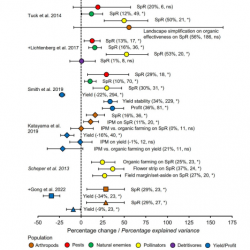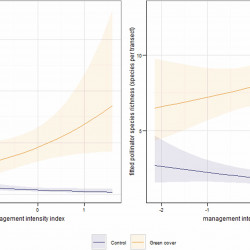
28 February 2025
The intensification of European agriculture increased food production but severely impacted farmland biodiversity and essential ecosystem services, making farming systems more vulnerable to environmental and economic challenges. To mitigate these effects, the EU’s Common Agricultural Policy (CAP) promotes agri-environment schemes that incentivise nature-friendly...
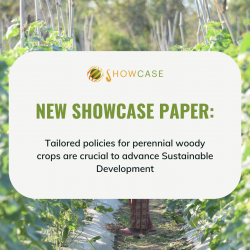
03 February 2025
A co-funded SHOWCASE study was recently conducted, bringing together experts in agriculture, ecology and policy to explore the potential of perennial crops in sustainable farming. Authored by project partner CSIC, alongside CIRAD, UFZ, Xi’an Jiaotong-Liverpool University, China Agricultural University, Kwame Nkrumah University of Science and Technology,...
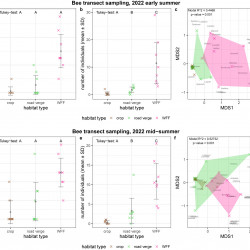
15 January 2025
Agricultural landscapes across Europe have been extensively modified, leading to biodiversity loss and reduced ecosystem services. As part of global restoration efforts, initiatives like the UN Decade on Ecosystem Restoration and the EU's Biodiversity Strategy aim to promote the restoration of semi-natural habitats, especially grasslands,...
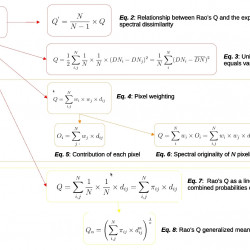
04 October 2024
In a recent co-funded SHOWCASE study, researchers Duccio Rocchini (University of Bologna), Michele Torresani (University of Bolzano) - SHOWCASE partners - and Carlo Ricotta (University of Rome), have explored the importance of spatio-ecological heterogeneity in ecosystems and presented a compelling case for using the Rao’s Q index as an advanced method...
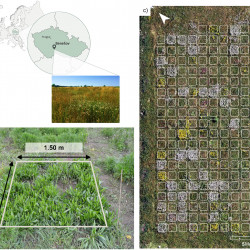
01 October 2024
A study, conducted by Czech University of Life Sciences Prague, University of South Bohemia, Swiss National Park, University of Tartu, University of Sassari and SHOWCASE partners, Free University of Bolzano-Bozen and Alma Mater Studiorum University of Bologna, investigates how flowering affects the applicability of six different remotely sensed...
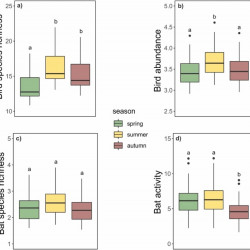
08 August 2024
A SHOWCASE co-funded study written by project partner University of Cádiz in collaboration with Mediterranean Institute for Agriculture, Environment and Development, Institute for Multidisciplinary Research in Applied Biology (IMAB) and Department of Science, CIBIO, InBIO and BIOPOLIS Program in Genomics sheds light on the impact of agricultural intensification...
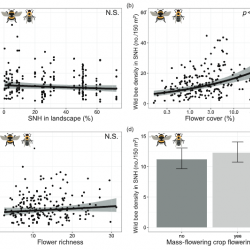
30 July 2024
Global declines in insect populations, particularly pollinators, have raised concerns about food security, since many crops depend on insect pollination. To address this, various international, national and local initiatives have focused on increasing semi-natural habitats in agricultural landscapes to support pollinators. While increasing habitat quantity...

28 May 2024
SHOWCASE project member Dr. Ignasi Bartomeus, representing the Spanish National Research Council (CSIC), recently published a blog post in the EcoMandanga Blog - a popular Spanish outlet for ecology-related news. He explores the inherent link between science and policy, urging scientists to recognise this connection and improve their transparency in...

23 May 2024
A SHOWCASE-funded paper, written by project partners The Spanish National Research Council (CSIC), Agroscope, HUN-REN Centre for Ecological Research, University of Cadiz, University of Evora, University of Reading, Wageningen University and Research, Swedish University of Agriculture Sciences Agricultural, in collaboration with Aarhus University and...

14 May 2024
This press release was published by EurekAlert! and AlphaGalileo.
Pollinators like bees, butterflies and hoverflies are essential for transferring genetic material crucial for the reproduction of flowering plants, sustaining fruits, vegetables and fibres, as well as supporting biological diversity and climate change adaptation in food production...
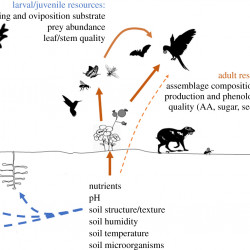
05 April 2024
A co-funded study, conducted by project partner Spanish National Research Council in collaboration with the Federal University of Goiás, University of Coimbra and the Centre for Ecology, Evolution and Environmental Changes, investigates the impact of human-induced changes in soil properties on pollinators and seed dispersers, as well as the mechanisms...
